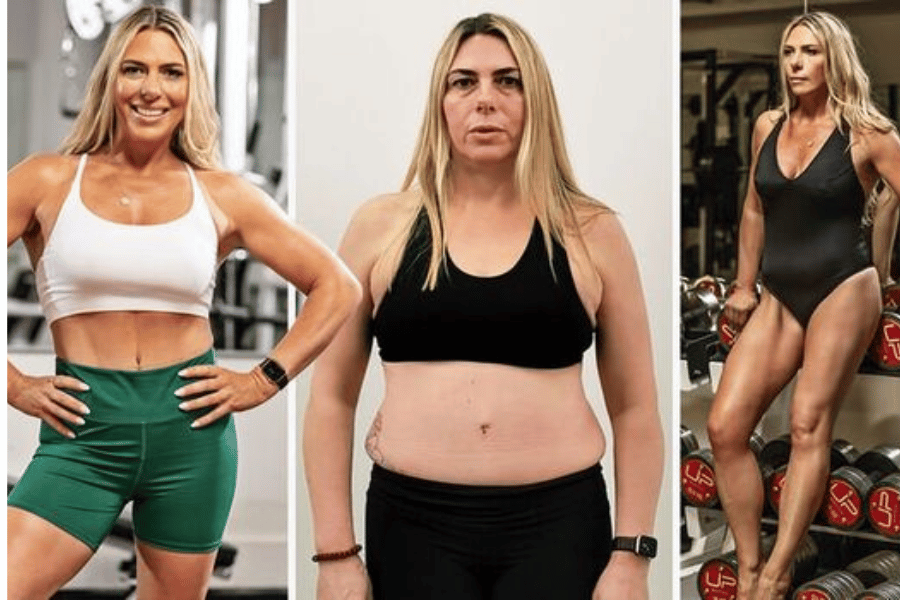Menopause cause weight loss?Menopause, a natural part of aging for women, often brings with it concerns about weight management. Many women find themselves grappling with weight fluctuations during this phase, leading to questions and uncertainties about maintaining a healthy weight. One approach gaining attention for its potential to aid in weight loss during menopause is intermittent fasting. This method is not just a diet trend but a lifestyle change that can positively impact health and well-being during menopause.
In this comprehensive guide, we explore the intersection of intermittent fasting and menopause, specifically focusing on how it can potentially cause or aid in weight loss. We will delve into the scientific understanding of this relationship, offering insights into how intermittent fasting can be safely and effectively implemented during menopause. Our goal is to provide you with well-researched information, empowering you to make informed decisions about your health and weight management during this pivotal time in your life.

Understanding Menopause and Weight Loss
Menopause, a natural biological process that marks the end of a woman’s reproductive years, often comes with a myriad of physical and emotional changes. Among these changes, weight management during menopause is a significant concern for many. The fluctuation in weight can be attributed to various factors, including hormonal changes, aging, and lifestyle shifts.
One of the most noticeable changes during menopause is the alteration in hormone levels, particularly the reduction of estrogen. This hormonal shift can impact metabolism, leading to a slower metabolic rate. Consequently, many women experience weight gain, particularly around the abdomen, a phenomenon often referred to as ‘menopausal belly.’ However, it’s also important to acknowledge that menopause can cause weight loss in some women, due to factors like decreased muscle mass, changes in appetite, and alterations in fat storage.
Additionally, the aging process itself can contribute to changes in body composition. With age, there’s a natural tendency to lose muscle mass and gain fat, which affects overall body weight and shape.
Understanding these changes is crucial for addressing weight loss or gain during menopause. Recognizing that each woman’s experience is unique, and that weight fluctuations can be a normal part of this transition, is essential. In the following sections, we will explore how intermittent fasting might interact with these menopausal changes and potentially serve as a tool for effective weight management during this phase.

Intermittent Fasting During Menopause: A Scientific Perspective
Defining Intermittent Fasting and Its Variations
Intermittent fasting (IF) is a dietary approach that cycles between periods of eating and fasting. Common variations include the 16/8 method, where eating is restricted to an 8-hour window each day, and the 5:2 method, which involves normal eating for five days and reducing calorie intake to 20-25% of normal intake for two non-consecutive days a week. These methods are gaining popularity as tools for weight loss and overall health improvement.
Menopause cause weight loss??How Intermittent Fasting Affects the Body During Menopause
During menopause, women experience significant hormonal changes that can impact metabolism and body composition. Intermittent fasting has been shown to influence these factors positively.
- Hormonal Balance: Studies indicate that IF can help in balancing hormones such as insulin. Insulin sensitivity tends to decrease during menopause, leading to potential weight gain. IF can enhance insulin sensitivity, thus aiding in weight loss and metabolic health.
- Fat Loss and Muscle Preservation: Research published in the ‘Journal of Mid-Life Health’ suggests that IF can aid in reducing abdominal fat while preserving muscle mass during menopause. This is crucial as muscle mass typically decreases during this phase, slowing down the metabolism.
- Reduced Inflammation: Menopause is often associated with increased inflammation. A study in the ‘Nutrition Research’ journal found that IF could reduce markers of inflammation, contributing to improved overall health.
- Improved Mental Clarity and Well-being: Apart from physical health, intermittent fasting has been linked to improved mental health, which can be beneficial during menopause, a period often marked by mood swings and cognitive changes.
Expert Opinions
Experts like Dr. Jason Fung, a leading authority on intermittent fasting and its role in metabolic health, have emphasized the benefits of IF for weight management, especially in menopausal women. He highlights that a well-planned IF regimen can lead to sustainable weight loss and improved health outcomes.
Intermittent fasting presents a viable option for addressing the weight loss challenges that menopause can cause. It offers a way to not only manage weight but also improve overall health during this crucial phase of a woman’s life. However, it’s important to approach IF under medical guidance, especially for women experiencing menopause, to ensure it’s done safely and effectively.

Practical Tips for Implementing Intermittent Fasting
Menopause cause weight loss?Integrating intermittent fasting into a menopausal lifestyle can be a transformative step towards managing weight loss and enhancing overall health. However, it’s essential to approach this method mindfully and safely. Here are some practical tips for women considering intermittent fasting during menopause:
Starting Intermittent Fasting Safely
- Consult with a Healthcare Professional: Before starting intermittent fasting, consult with a doctor, especially if you have health conditions or take medication.
- Begin Gradually: Start with shorter fasting periods and gradually increase the duration over time. This can help your body adjust comfortably.
Managing Hunger and Nutrition
- Balanced Diet: Ensure that your eating periods include a balance of proteins, fats, carbohydrates, and essential nutrients. Focus on whole foods like vegetables, fruits, lean proteins, and whole grains.
- Stay Hydrated: Drink plenty of water throughout the day. Herbal teas and black coffee can also be included during fasting periods.
- Mindful Eating: Pay attention to hunger cues and eat until you are comfortably full. Avoid overeating during eating windows.
Tailoring Intermittent Fasting to Individual Health Needs
- Personalize Your Fasting Plan: Choose a fasting method that fits your lifestyle and health needs. Some may prefer the 16/8 method, while others may find the 5:2 method more manageable.
- Listen to Your Body: Monitor how your body responds to intermittent fasting. Some may experience increased energy, while others might need adjustments to their fasting routine.
Lifestyle Considerations
- Exercise: Engage in regular physical activity, but be mindful of your energy levels. Gentle exercises like walking, yoga, or swimming can be beneficial.
- Adequate Sleep: Prioritize getting enough sleep, as poor sleep can affect hunger hormones and make fasting more challenging.
- Stress Management: High stress can impact your ability to stick to a fasting plan. Incorporate stress-reduction techniques such as meditation, deep breathing, or hobbies.
Overcoming Common Challenges
- Coping with Cravings: If you experience cravings, try distracting yourself with a walk, a hobby, or a glass of water. Sometimes, thirst is mistaken for hunger.
- Social Situations: Plan ahead for social events. If a social event falls during your fasting period, consider adjusting your fasting window for that day.
By following these tips, menopausal women can effectively implement intermittent fasting as part of a healthy lifestyle, aiding in weight loss and improved wellbeing. Remember, intermittent fasting is not just about when you eat, but also about what you eat and how you live. The key is to find a balance that works harmoniously with your body’s needs during menopause.
Conclusion
The journey through menopause is unique for each woman, and finding effective strategies for weight loss and health maintenance during this time can be empowering. Intermittent fasting emerges as a promising approach, offering more than just weight management. It encompasses potential benefits like improved metabolism, hormonal balance, and overall wellbeing.
We encourage our readers to reflect on the insights provided about the intertwining of menopause and intermittent fasting. How do you see these concepts fitting into your lifestyle? Your experiences and thoughts on this topic are invaluable, and we invite you to share them. Ultimately, the goal is to embrace a holistic approach to health during menopause, recognizing that the journey is as much about mental and emotional wellbeing as it is about physical health.
Addressing Key Questions: Menopause and Intermittent Fasting
Q1: Can Intermittent Fasting Be a Safe Method for Weight Loss During Menopause?
Yes, intermittent fasting can be a safe and effective method for weight loss during menopause when done correctly. It is crucial to approach it with a well-considered plan and, ideally, under the guidance of a healthcare professional. Intermittent fasting can help regulate hormones and metabolism that are often disrupted during menopause, aiding in weight management. However, it is important to tailor the fasting plan to individual health conditions and lifestyle needs.
Q2: How Does Menopause Impact Metabolism and Weight Management?
Menopause can significantly impact metabolism and weight management. The hormonal changes, particularly the reduction in estrogen, can lead to a slower metabolism and changes in body composition, often resulting in weight gain. Some women may experience weight loss due to hormonal fluctuations affecting appetite and energy levels. Understanding these changes is key to developing effective weight management strategies during menopause.
Q3: What Are Some Tips for Managing Hunger and Cravings During Intermittent Fasting?
Managing hunger and cravings during intermittent fasting involves:
- Drinking plenty of water, as dehydration can often be mistaken for hunger.
- Including protein and fiber-rich foods in your diet to increase fullness.
- Planning meals and snacks that are nutritious and satisfying.
- Distracting yourself with activities or hobbies during fasting periods.
Q4: Are There Specific Health Considerations for Menopausal Women Practicing Intermittent Fasting?
Menopausal women should consider several health aspects when practicing intermittent fasting:
- Ensuring nutrient-dense food intake during eating windows to compensate for the fasting periods.
- Monitoring how the body reacts to fasting, especially if there are underlying health issues like diabetes or heart conditions.
- Being aware of the potential impact on sleep patterns and stress levels, as these can be affected during menopause.
Related Posts :
- En Ginger Tea And Weight Loss Isrf
- En Fusion Keto Gummies Vs Regular Gummies Are They Equally Delicious And Healthy Pmqr
- En Slimming Sensation Slim Labs Acv Keto Gummies Vs Shapewellx Which Soft Chew Works Best 6lxh
- En Unlocking Success Jenny Craig Weight Loss Techniques Revealed H3nw
- En Can Apex Keto Acv Gummies Help You Yya8